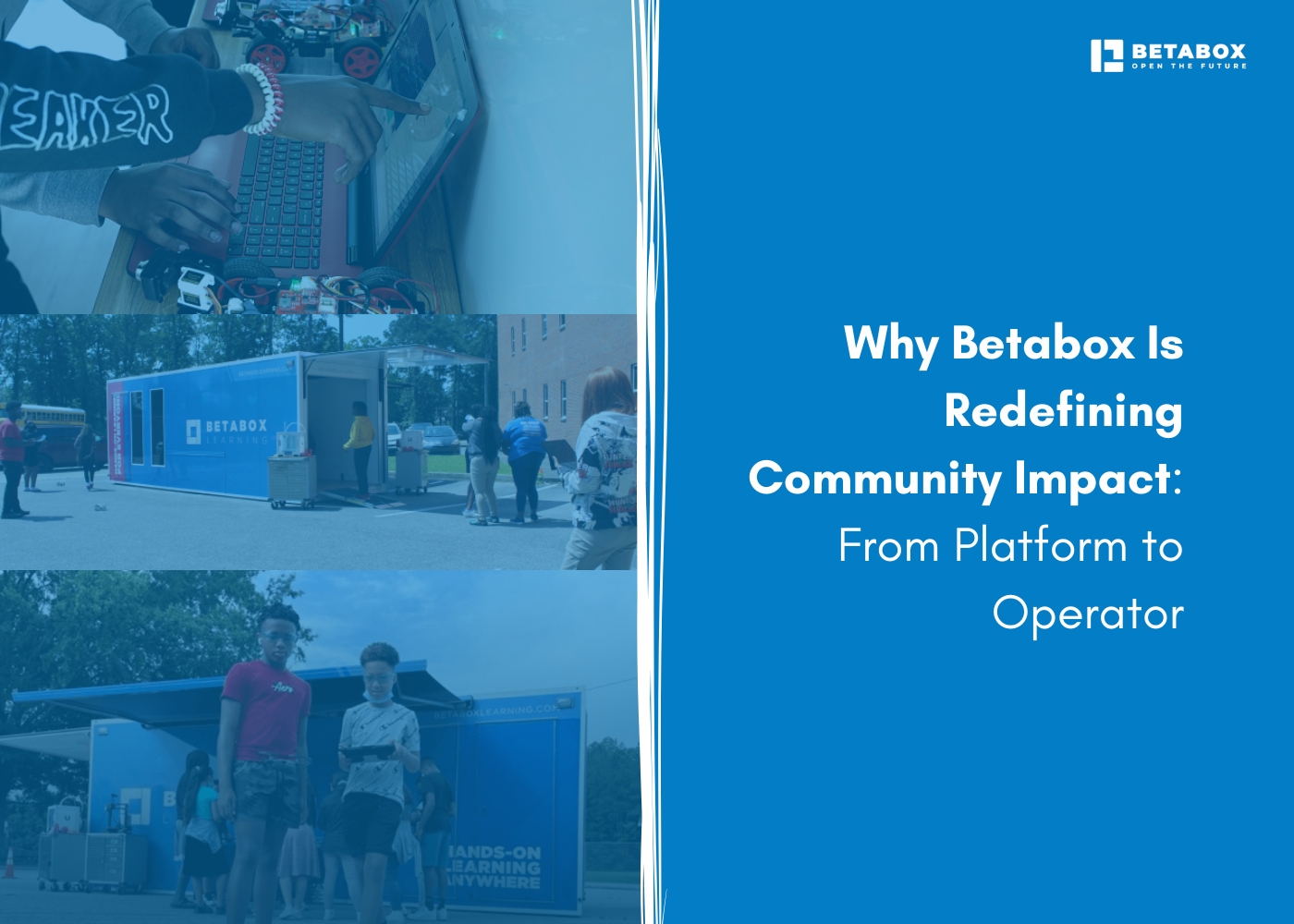
Corporate leaders in tech, advanced manufacturing, data centers, energy, and construction navigate a complex terrain. Stakeholders now prioritize initiatives that deliver verifiable returns on social investment. In K-12 education, this focus sharpens on STEM opportunity gaps, particularly in rural and under-resourced areas where access to quality resources remains uneven.
Betabox, founded in 2015, emerged from this inequity. It began with simple mobile labs, retrofitting shipping containers with 3D printers to deliver hands-on experiences directly to school parking lots.
A decade later, Betabox has served over 500,000 students across 1,000+ schools and 150+ districts. This trajectory reflects a key insight: true community impact demands moving beyond funding checks to active operations. Partners achieve deeper engagement when they co-create programs that sustain learning, rather than episodic events.
Consider the data. Zip codes often dictate STEM exposure, leaving rural students underserved. Betabox addresses this by operationalizing equity, ensuring programs reach disconnected communities.
For CSR leads, this means aligning investments with measurable workforce pipelines, reducing turnover in tech and manufacturing roles by building diverse talent early.
AI and robotics are accelerating job evolution, yet 99% of schools prepare students for obsolete careers. Betabox integrates digital tools into analog experiences, creating hybrid models that build adaptive skills.
Onsite Field Trips exemplify this. These mobile STEM labs arrive fully equipped, offering sessions in coding, robotics, and environmental science.
A single hour yields a 25% boost in STEM interest and 50% knowledge gain, per independent evaluations. Educators rate the programs at 90% NPS, highlighting ease of adoption.
Partners gain from these outcomes. Detailed reports track metrics like STEM identity growth and career awareness, tying directly to ESG criteria. This pragmatic approach turns philanthropy into a strategic lever, fostering community resilience amid digital shifts.
Betabox started as a connector, linking schools to STEM resources. The COVID-19 era exposed limitations; sparking interest proved insufficient without follow-through. Customers demanded "what's next," prompting a pivot to full operations.
Now, Betabox manages end-to-end delivery. Hands-On Projects empower students to tackle real challenges, such as designing self-driving cars. Classbox.com provides instant access to supplies, curricula, and coaching. Path Tools map nonlinear careers, preparing students for adaptive roles in AI-driven economies.
As an operator, Betabox handles logistics, from site setup to impact assessment. This reduces administrative burdens for districts, allowing partners to focus on strategic alignment. The result? Scalable programs that embed tech-driven change without overwhelming school systems.
Under-resourced schools contend with funding shortfalls, infrastructure deficits, and teacher inexperience. Betabox deploys solutions that bypass these hurdles, prioritizing rural access across 125+ counties.
Mobile labs eliminate travel barriers, delivering immersive activities like drone programming. These experiences build problem-solving skills, fostering equity where traditional models fail. First-year teachers receive turnkey kits and workshops, boosting their confidence and retention.
Insight lies in the "spark" moment: that first hands-on success igniting passion. Betabox creates these at scale, ensuring underrepresented students see themselves in tech roles. For partners, this translates to broader talent pools, addressing diversity gaps in advanced manufacturing and energy sectors.
Legacy funding, tied to property taxes, perpetuates inequality. Betabox advocates outcome-based models, inspired by NASA's pivot from cost-plus to fixed requirements, slashing inefficiencies.
Public-private partnerships blend grants with corporate investment. Examples include Google's STEM Tour for North Carolina schools and a lifelong learning initiative with AARP and Booz Allen Hamilton. The University of West Alabama's Department of Labor grant expanded outreach, securing millions for rural districts.
Tech firms fund mobile labs; manufacturers support project kits. Join the impact network for customized involvement, or explore industry opportunities. Onboarding streamlines setup, from blueprint calls to deployment.
Credible impact hinges on data. Betabox delivers pre- and post-program analytics, capturing shifts in knowledge and interest.
Track 25% interest surges, 50% knowledge improvements, and 500,000+ student reaches. These feed into partner dashboards, supporting transparent ESG narratives.
Start with field trips, expand to classroom integration. This builds district capacity, adapting to local needs. Over 325,000 students engaged demonstrate replicability, with partnerships driving multi-state growth.
Lasting change embeds learning into community fabric. Betabox equips educators with reusable tools, enabling self-directed evolution.
Drawing from founder Sean Newman Maroni's vision, Betabox supports four pillars: personalized hands-on development, competency-based credentials, detailed workforce paths, and innovative procurement. Partners operationalize these, preparing polymath creators for nonlinear careers.
Invest where impact compounds: fund rural upgrades to yield diverse innovators. This not only fulfills mandates but secures resilient supply chains. Explore Betabox's story to integrate these principles.
How is Betabox redefining community impact?
Betabox transitions from platform facilitator to hands-on operator, managing program lifecycles to ensure sustained STEM equity and engagement in K-12.
What challenges do schools face when implementing technology upgrades?
Common hurdles include budget constraints, outdated facilities, and educator training gaps. Betabox mitigates these with mobile, turnkey solutions that require minimal upfront investment.
How do turnkey STEM programs benefit under-resourced schools?
They deliver immediate, high-engagement tools, yielding 25% STEM interest growth and 50% knowledge gains in one session, while closing rural-urban divides.
What metrics can be used to measure community impact in education?
Prioritize STEM interest boosts, content mastery improvements, 90% educator NPS, and reach (500k+ students). Betabox provides comprehensive evaluation reports.
How does Betabox support public-private partnerships for STEM education?
Through incentive-aligned models, co-designed programs, and outcome tracking. Collaborations like those with Google and universities showcase scalable workforce development.


Ready to learn how Betabox resources can be implemented at your school or District?
Book a Blueprint Call



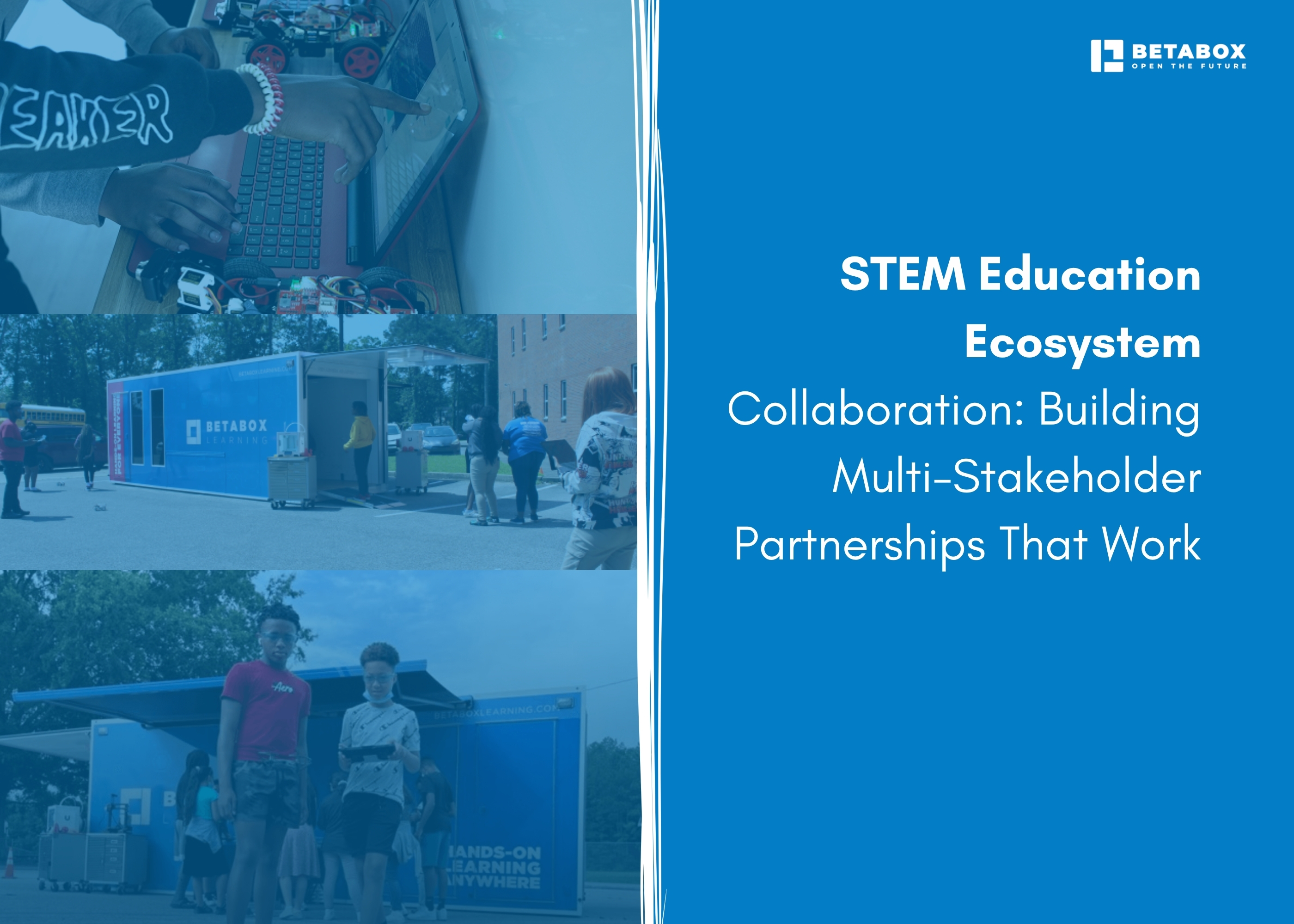

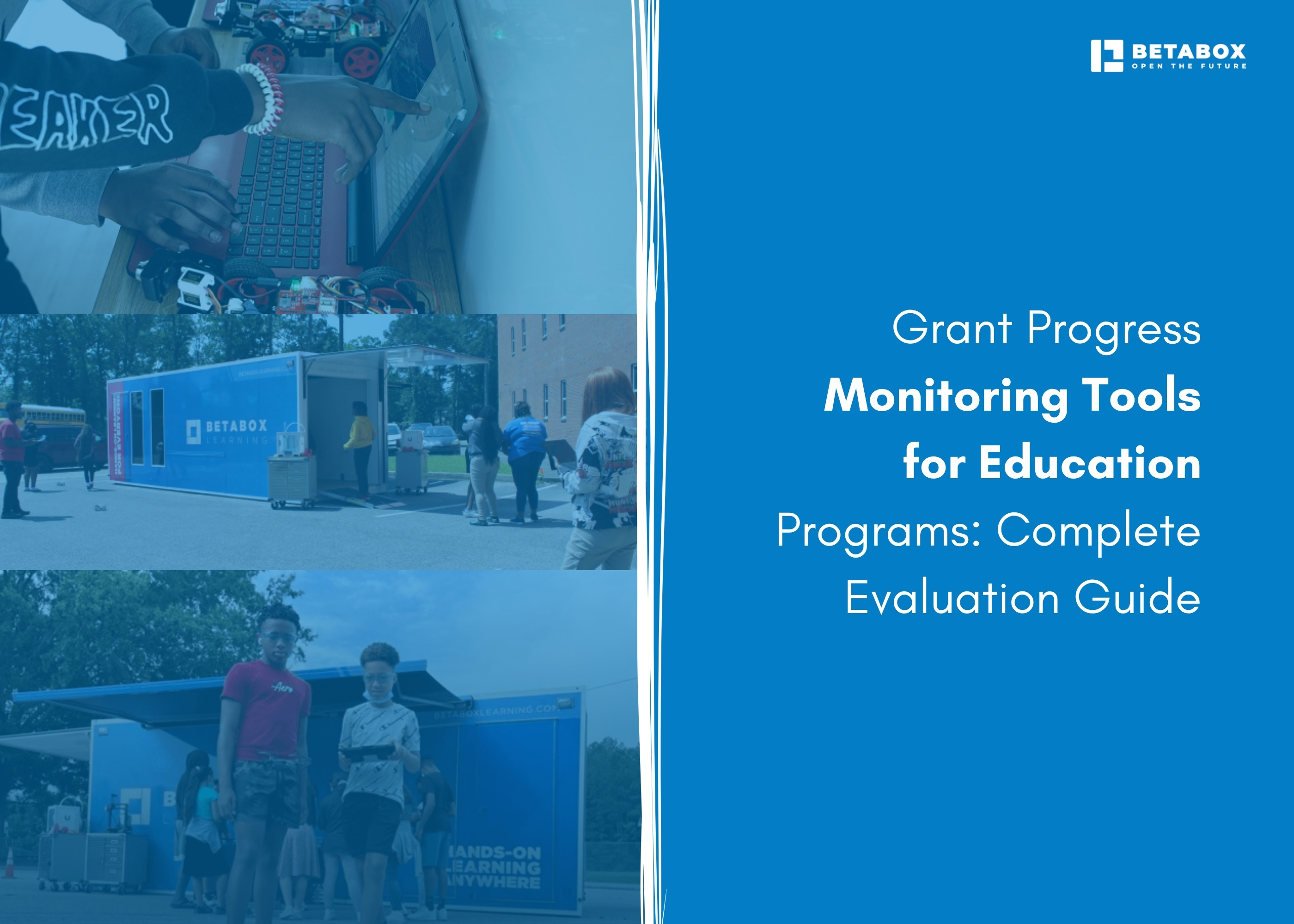

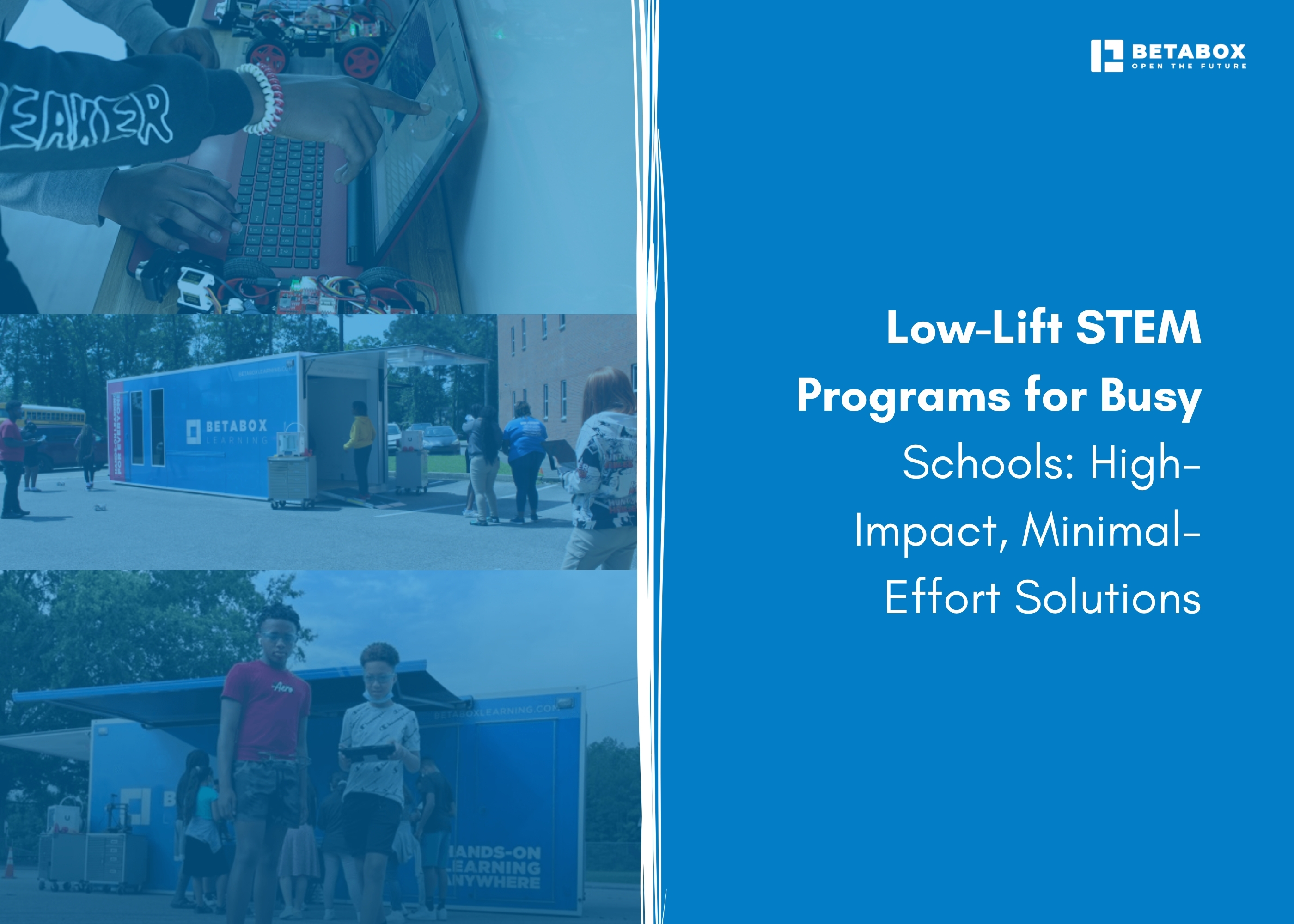

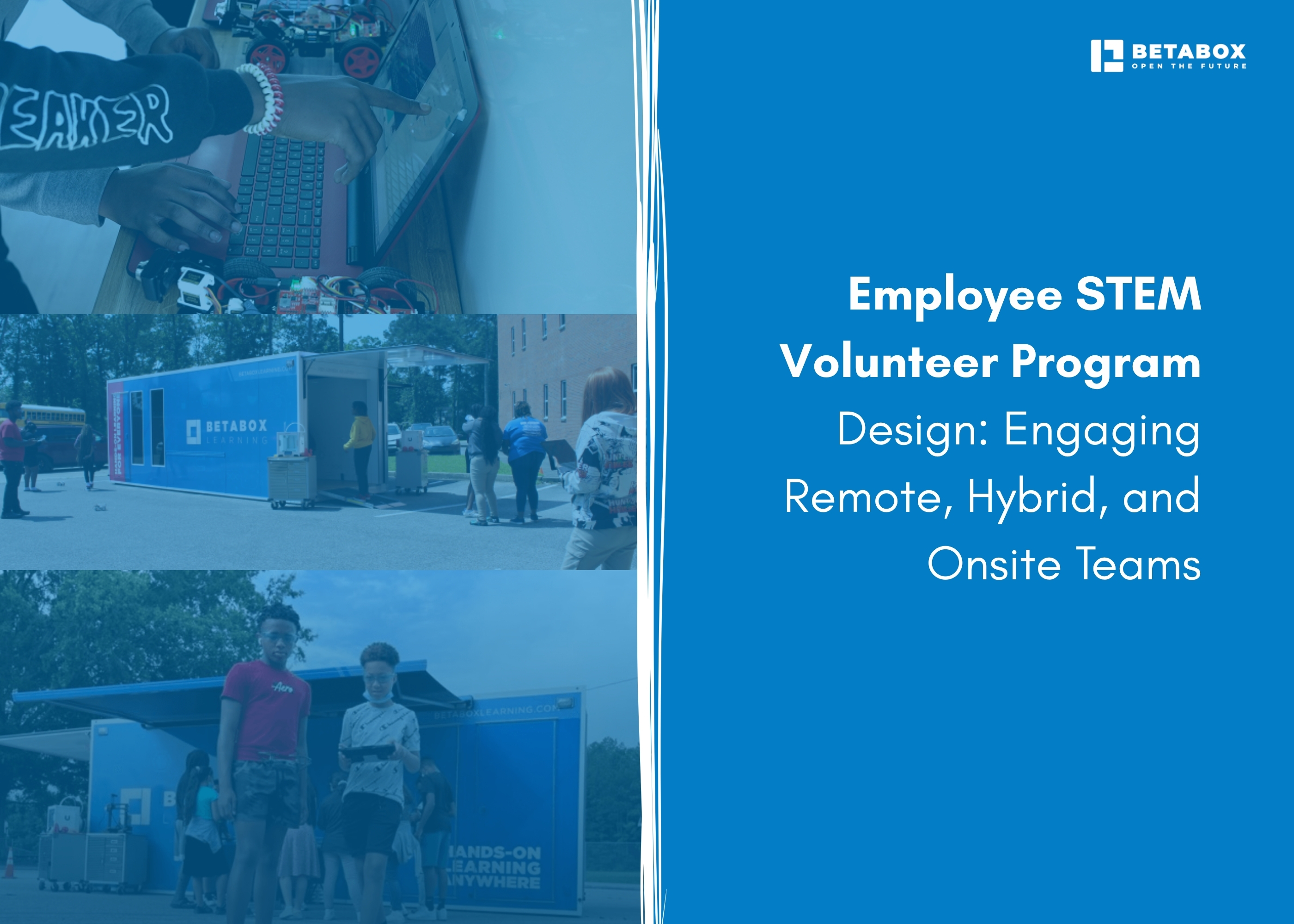



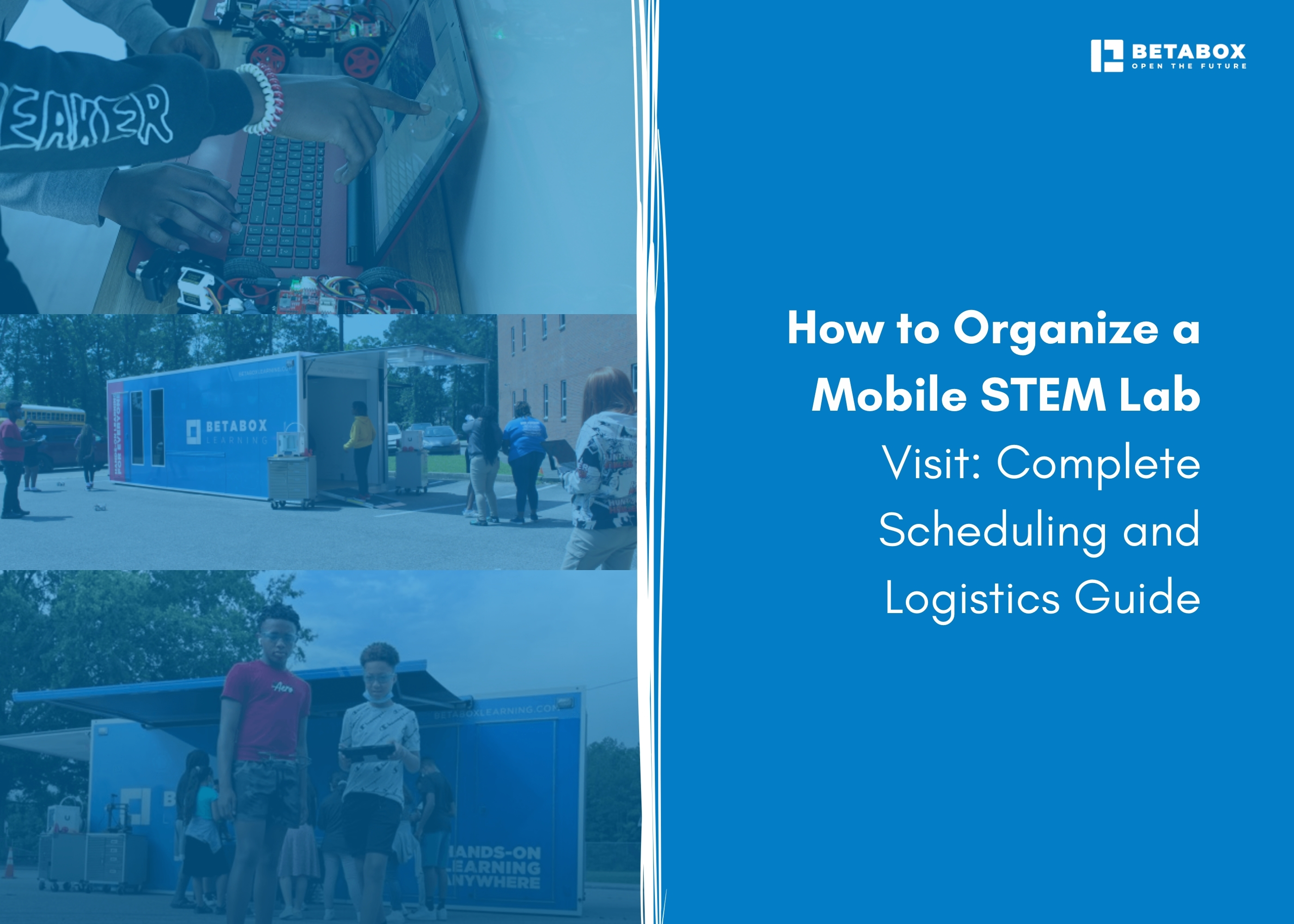



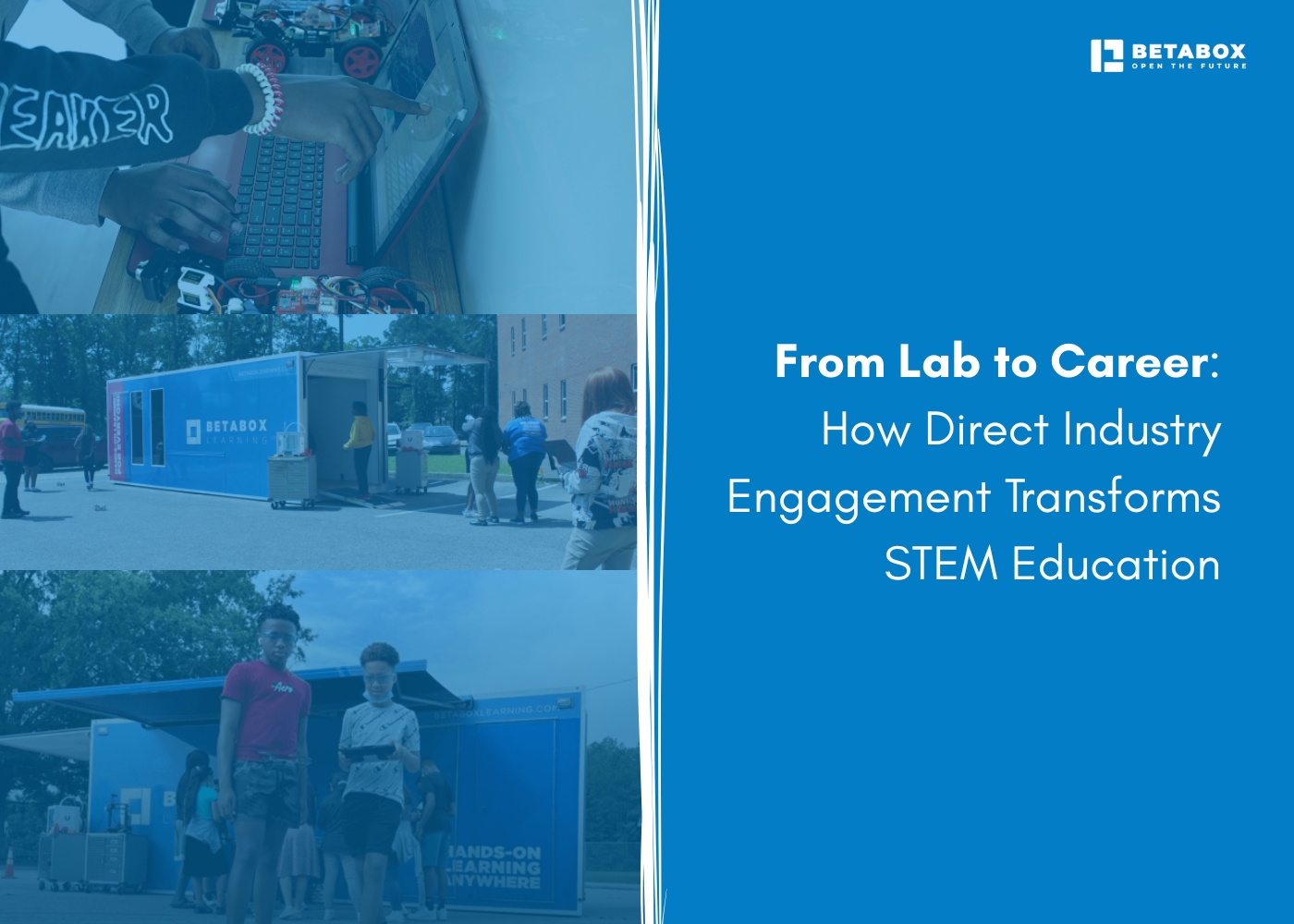

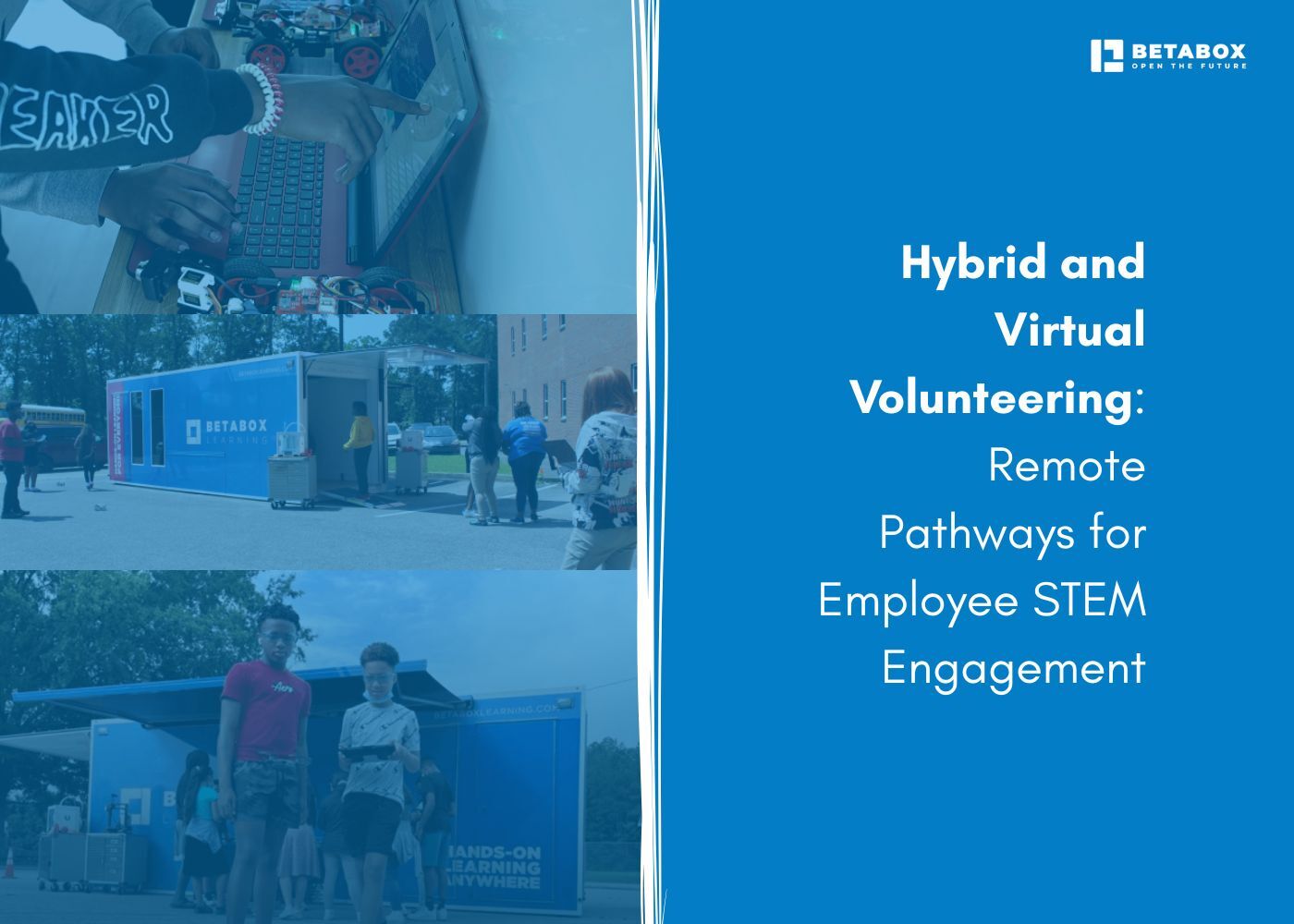

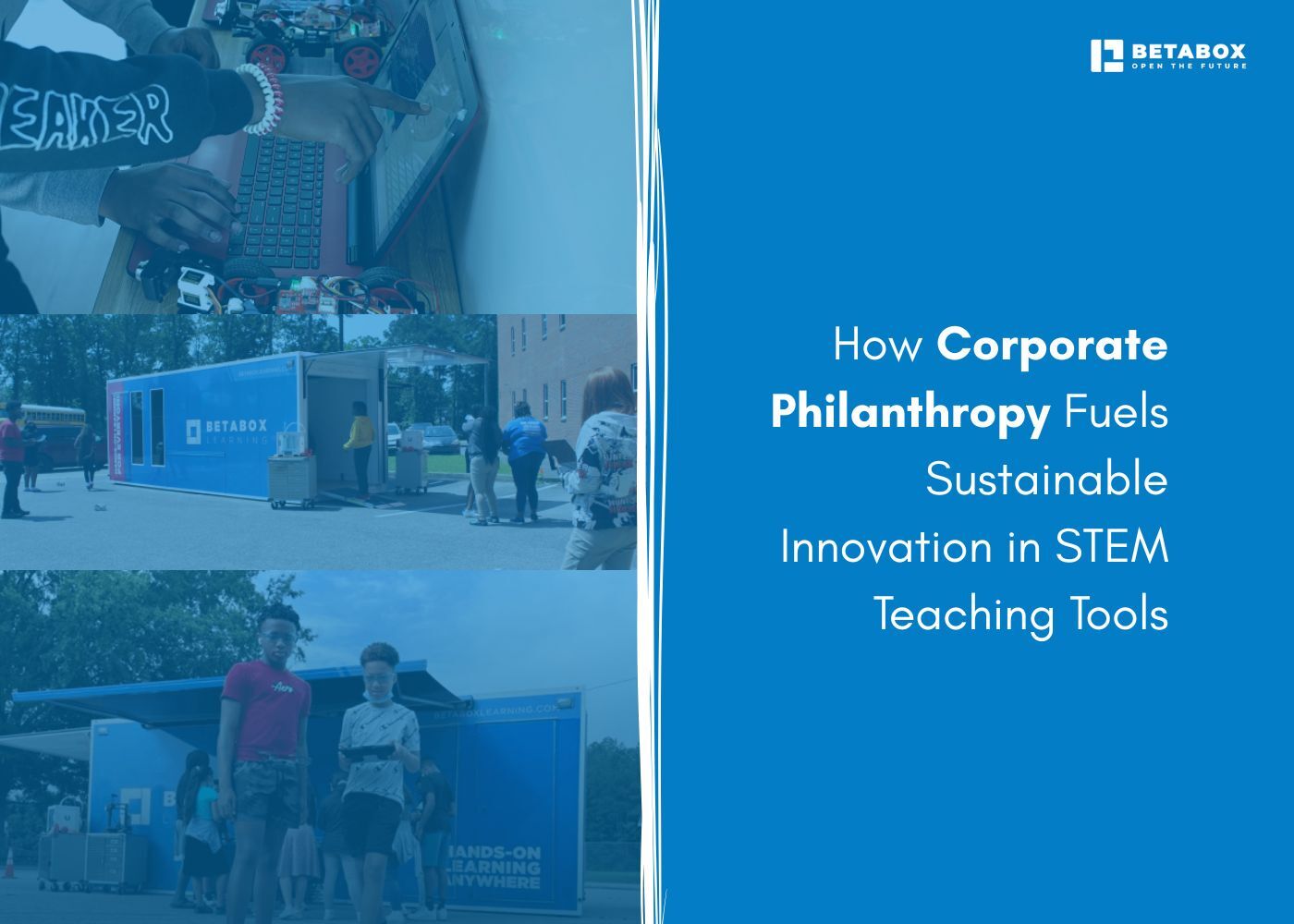

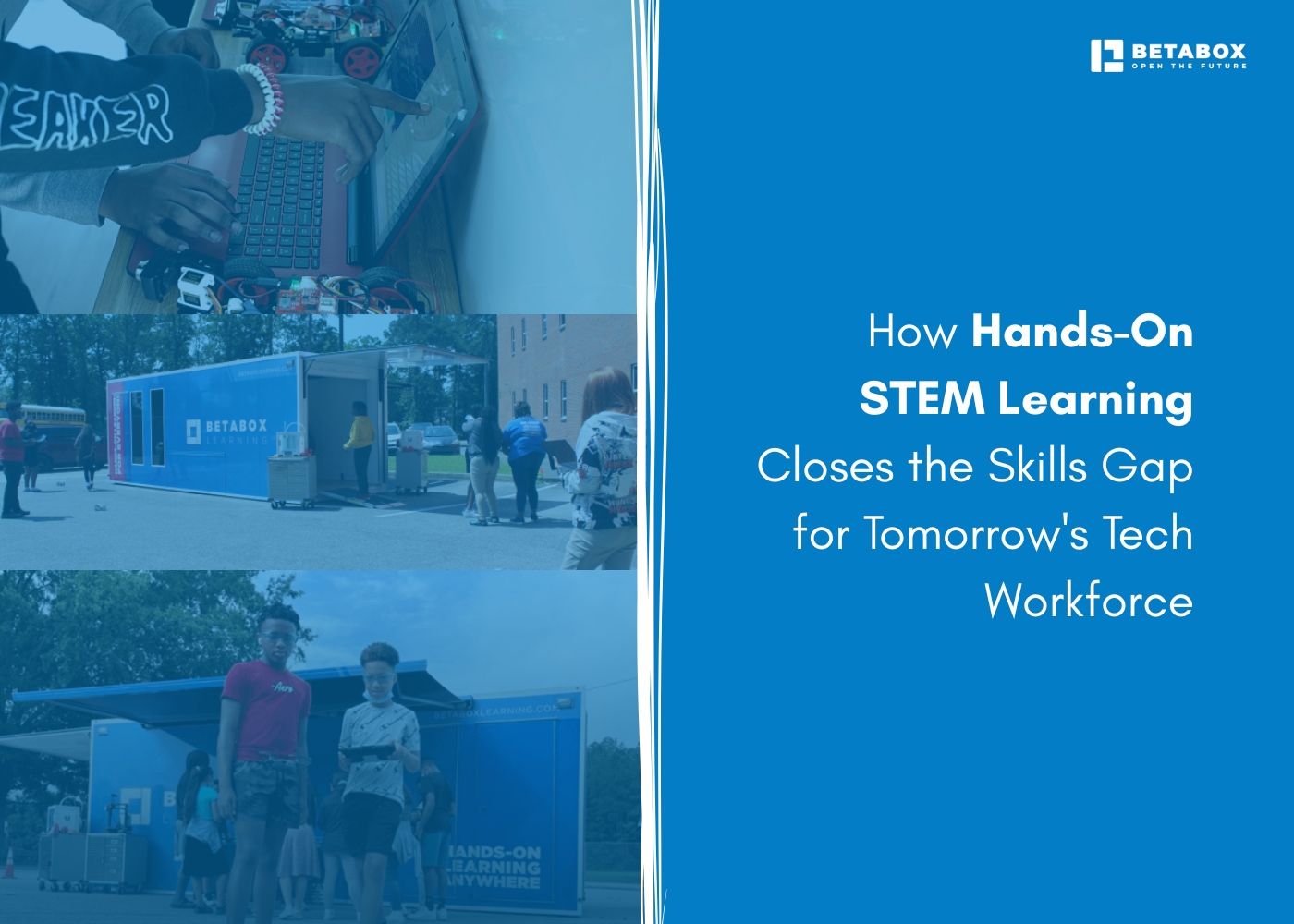

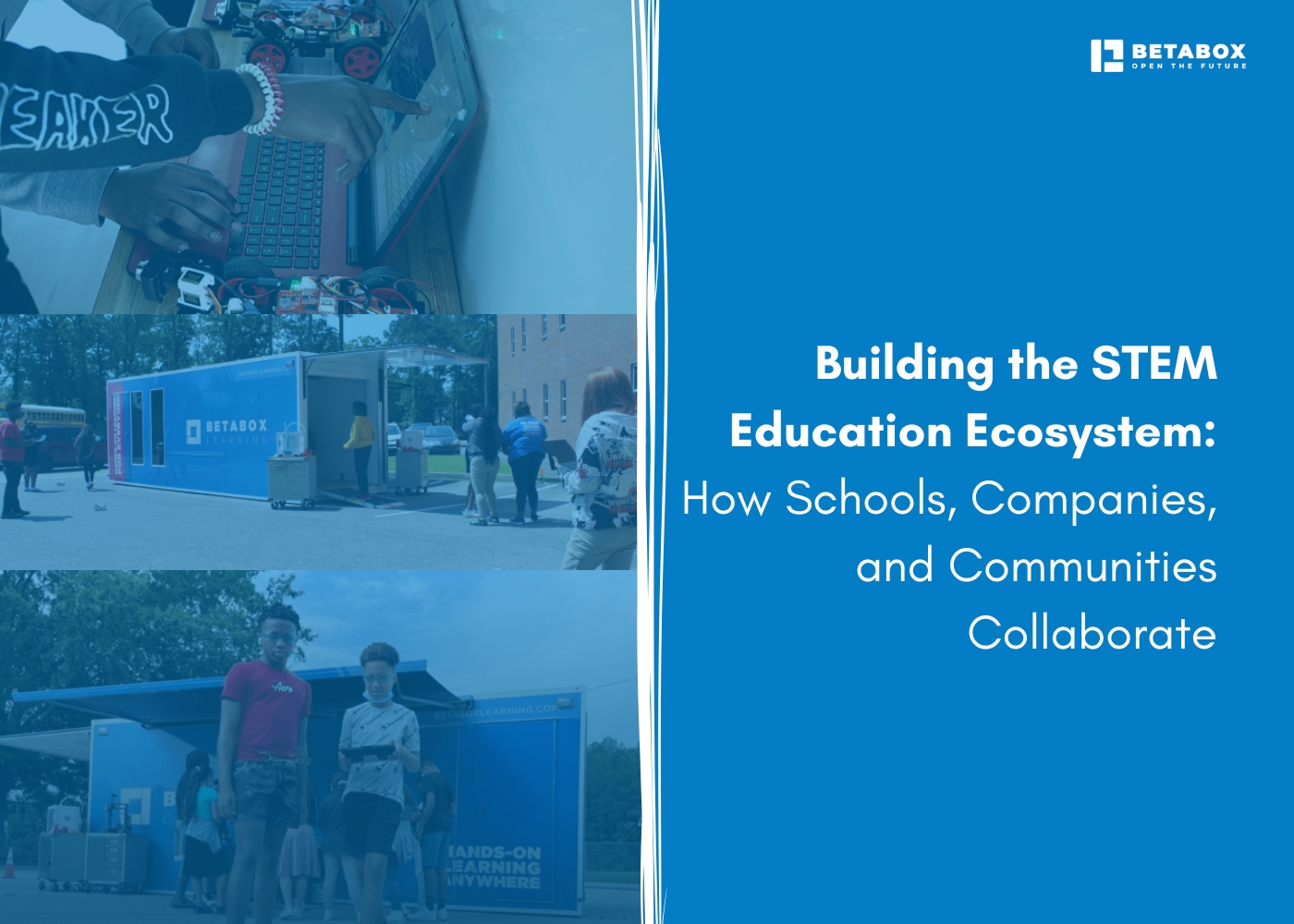

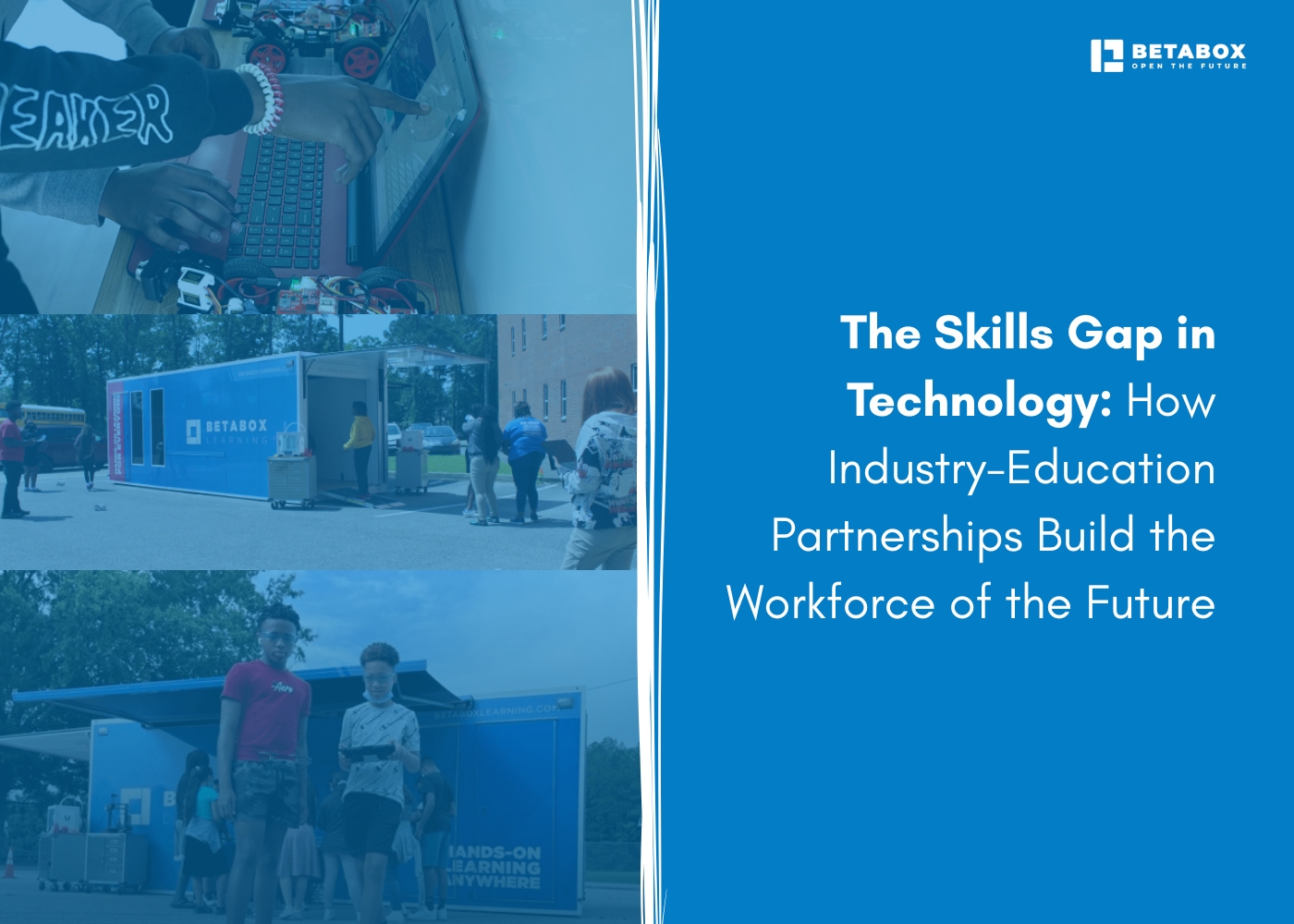

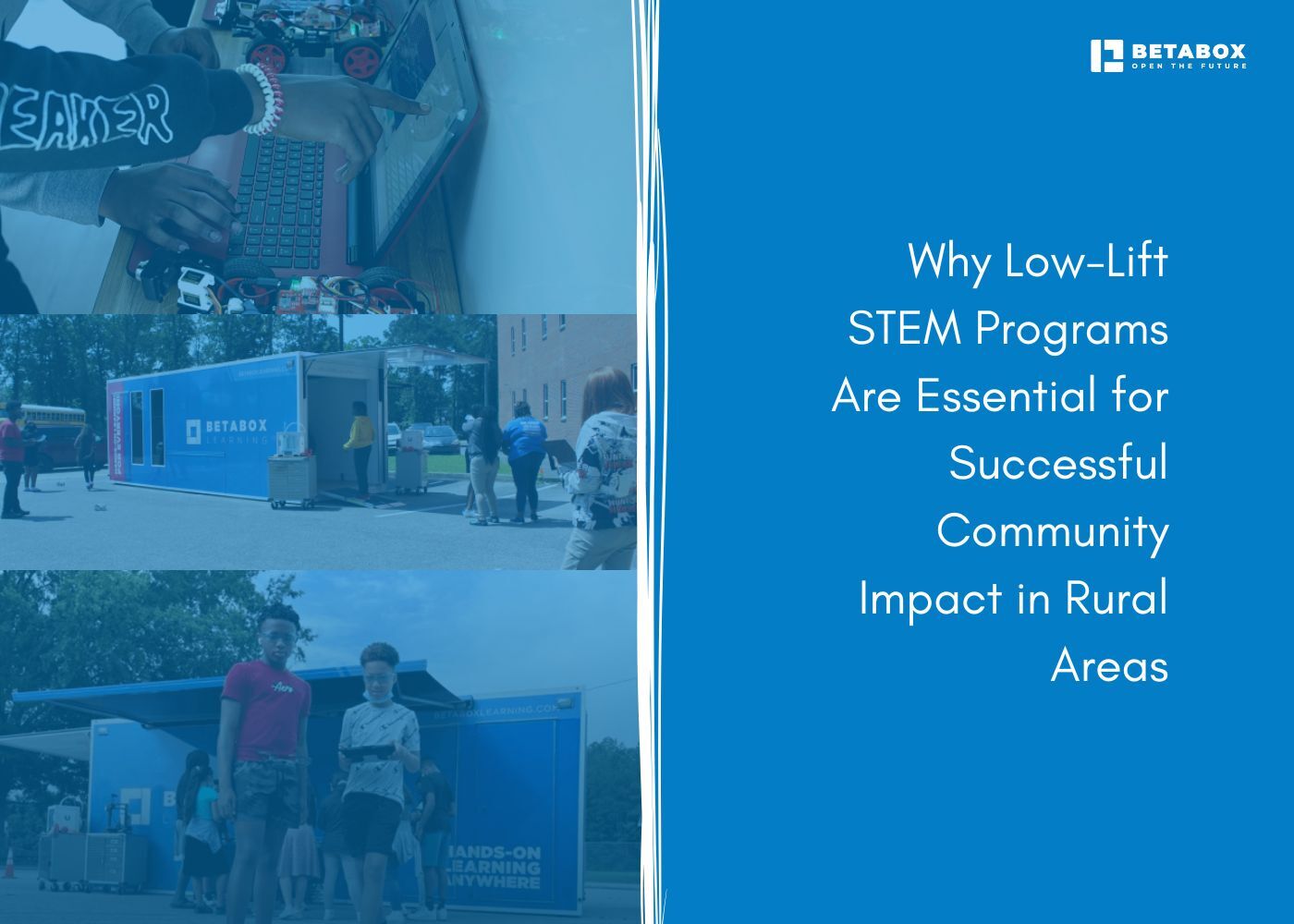

.jpg)

.jpg)

.jpg)

.jpg)

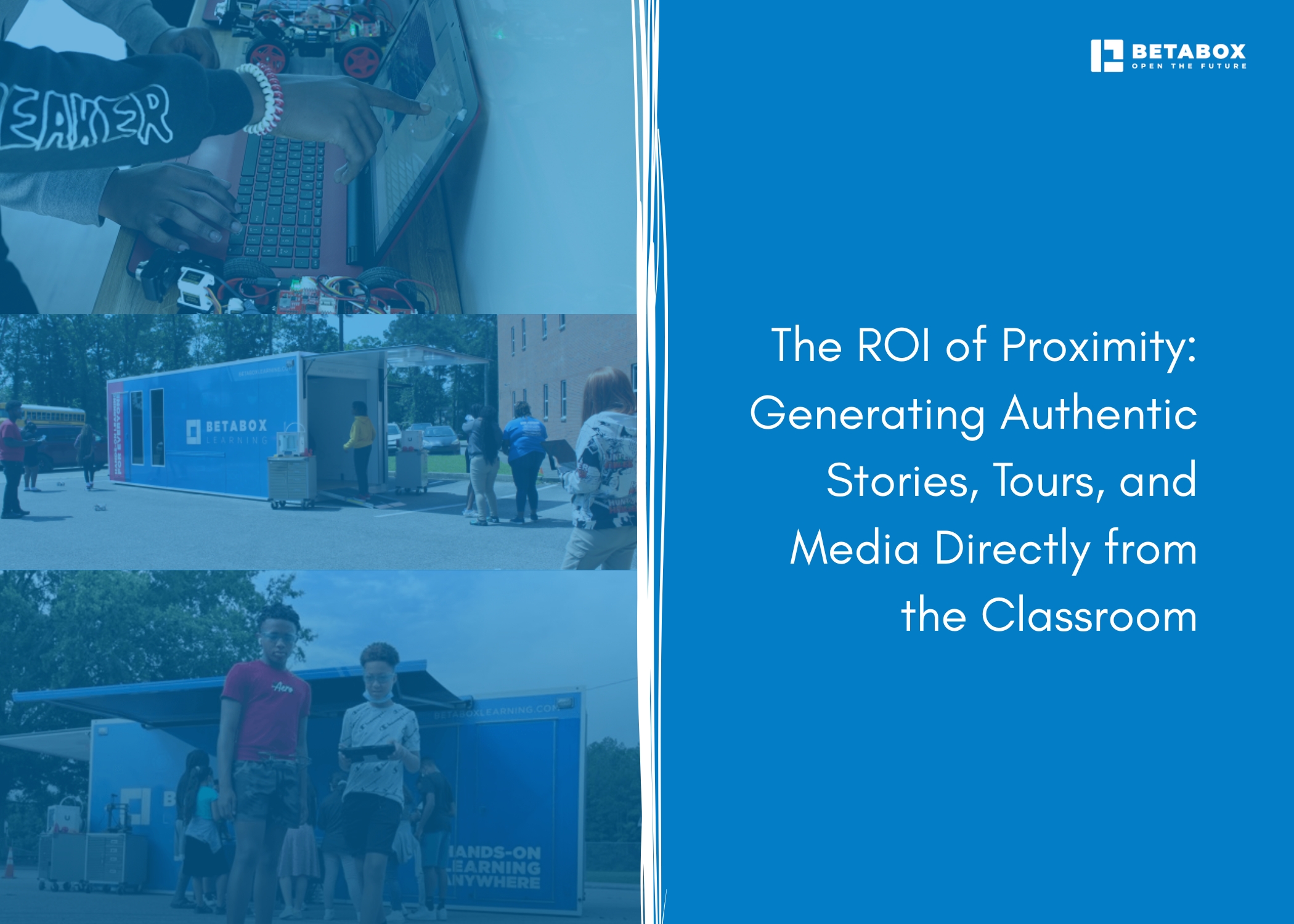

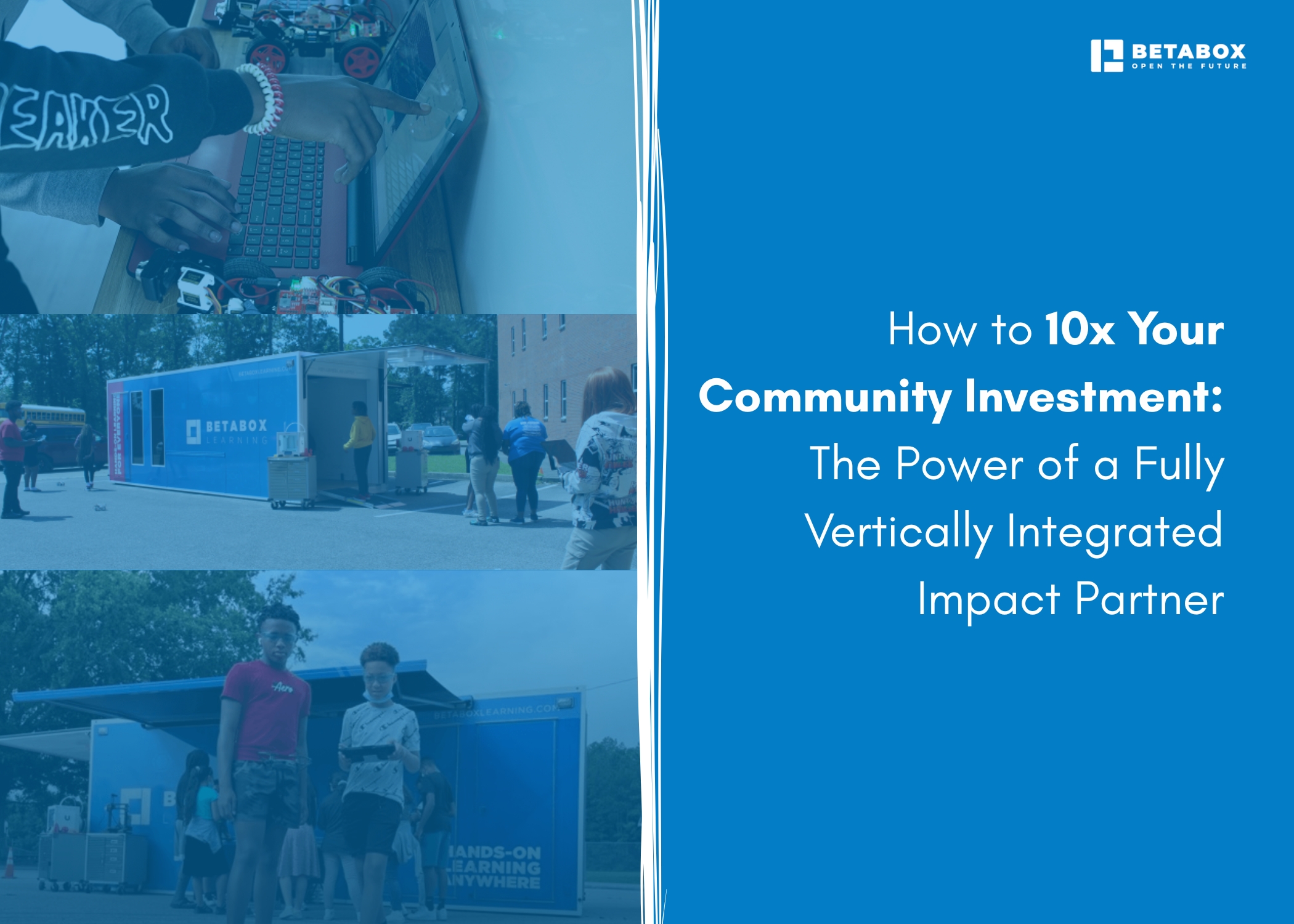

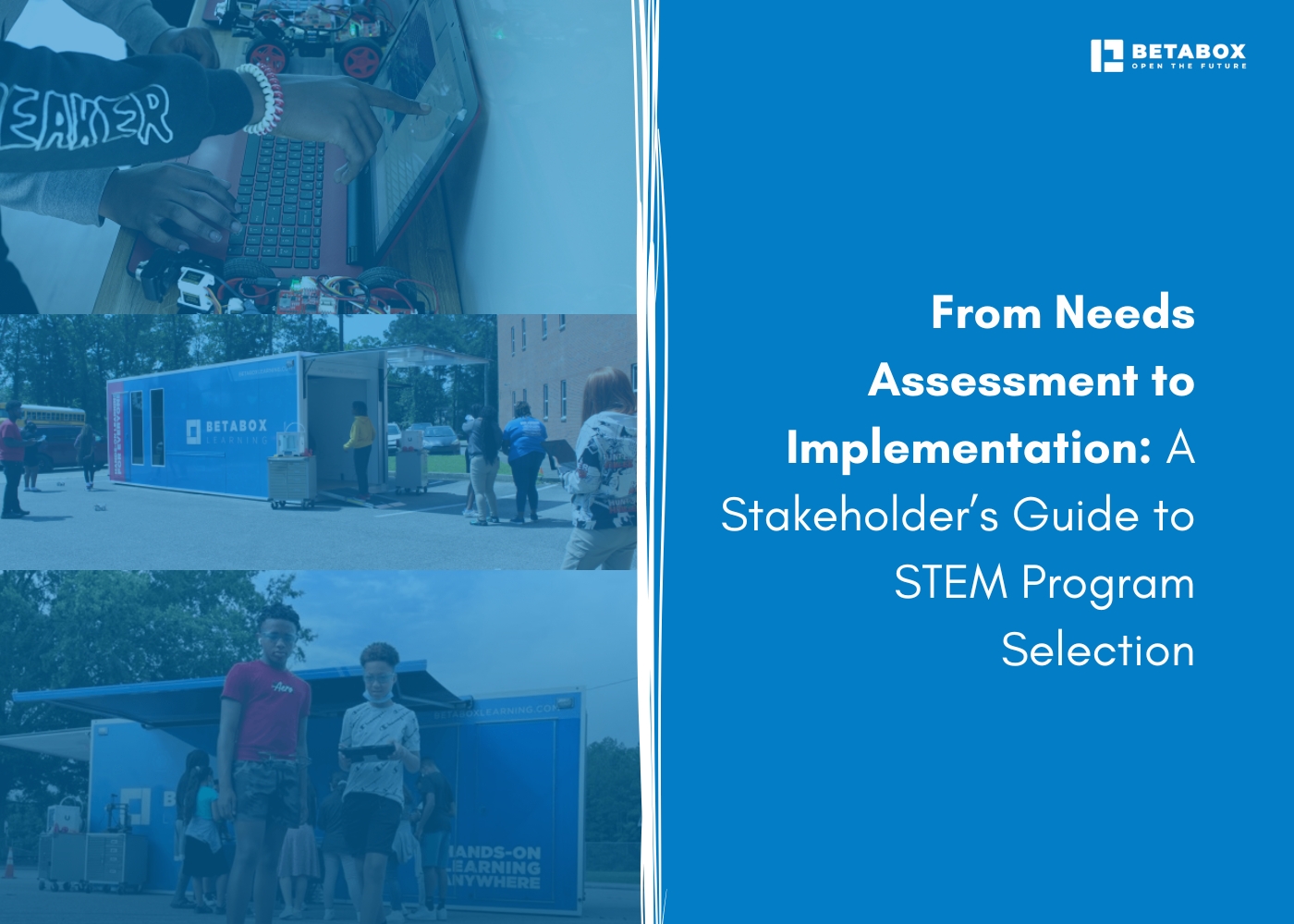

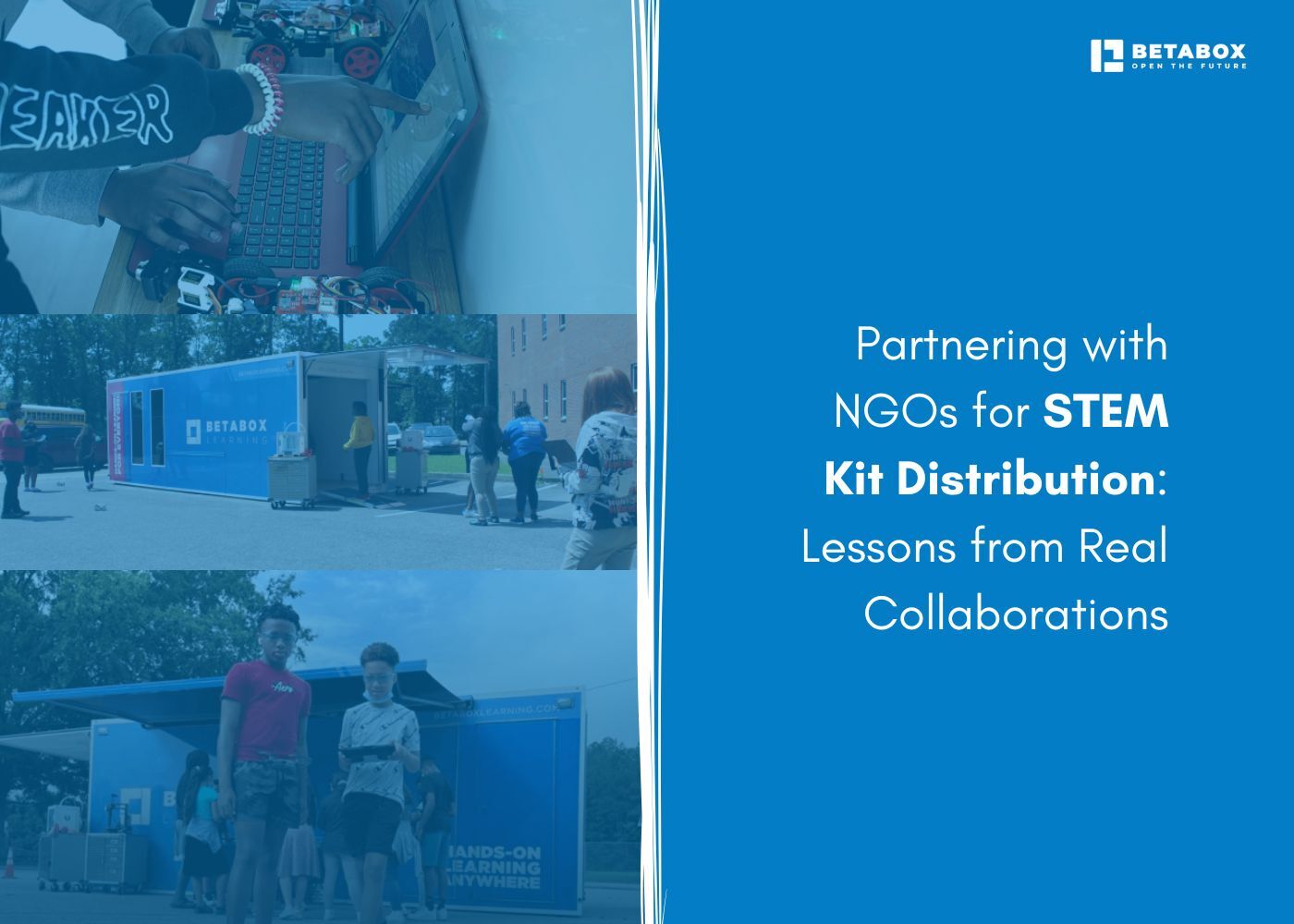

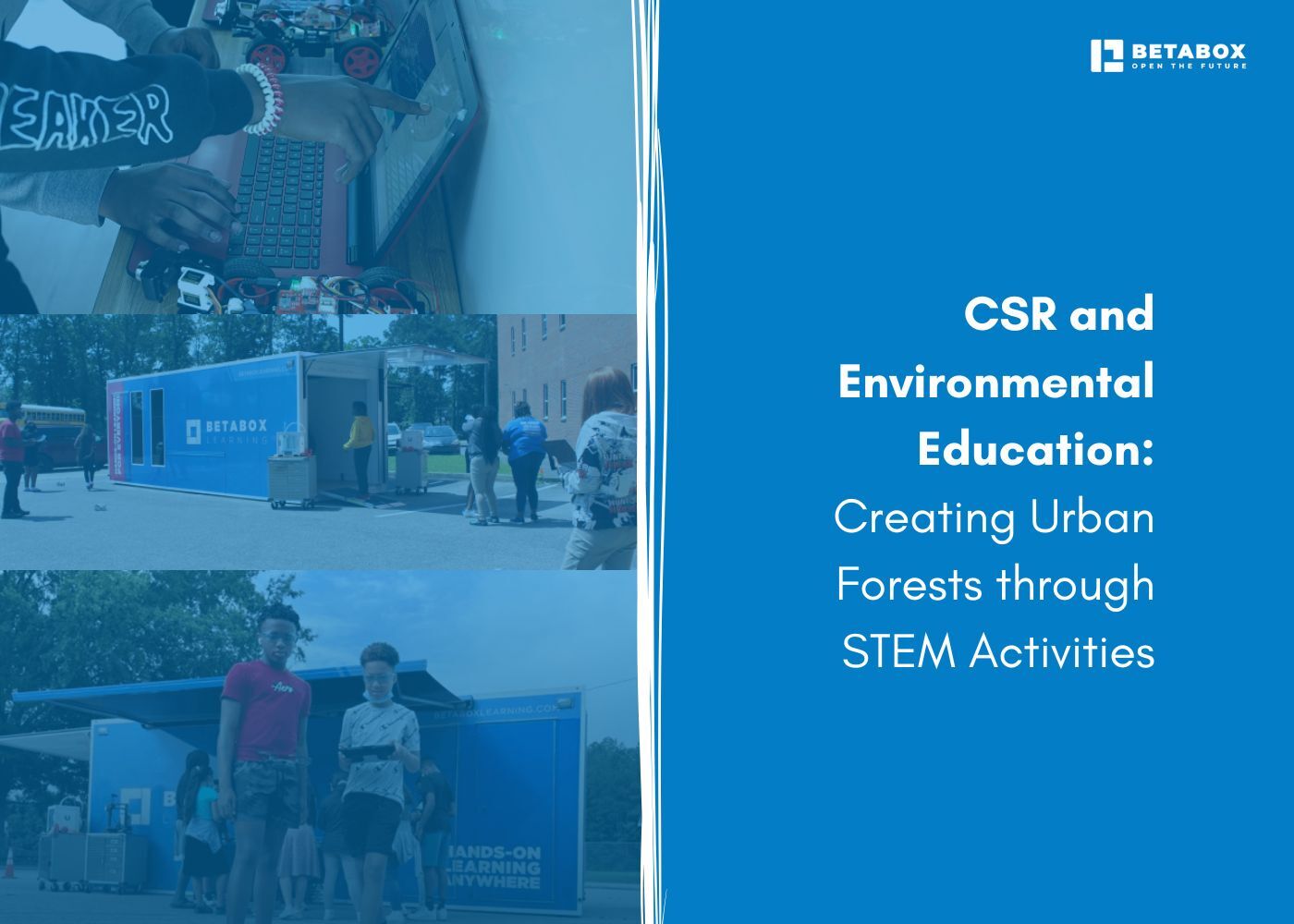

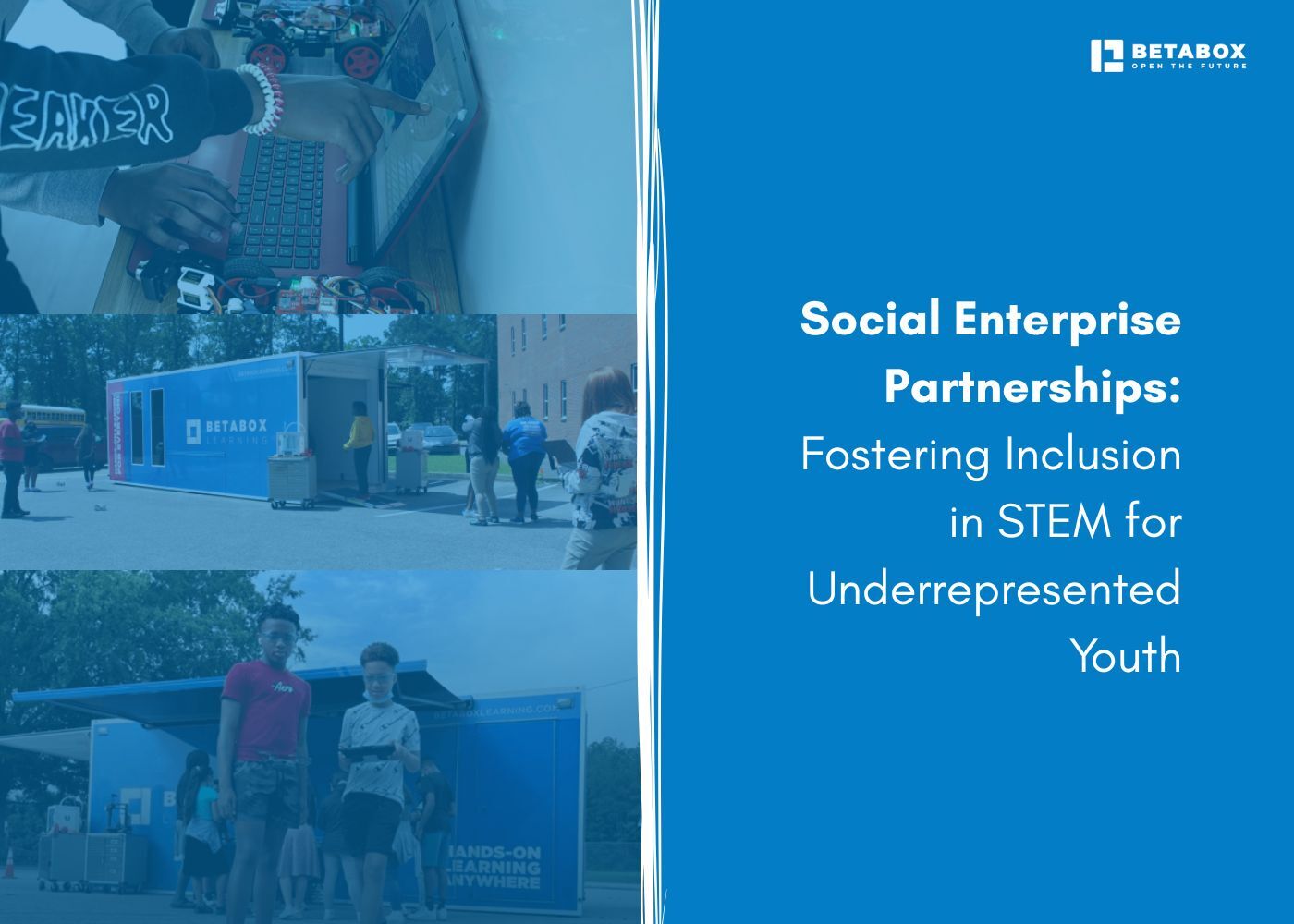

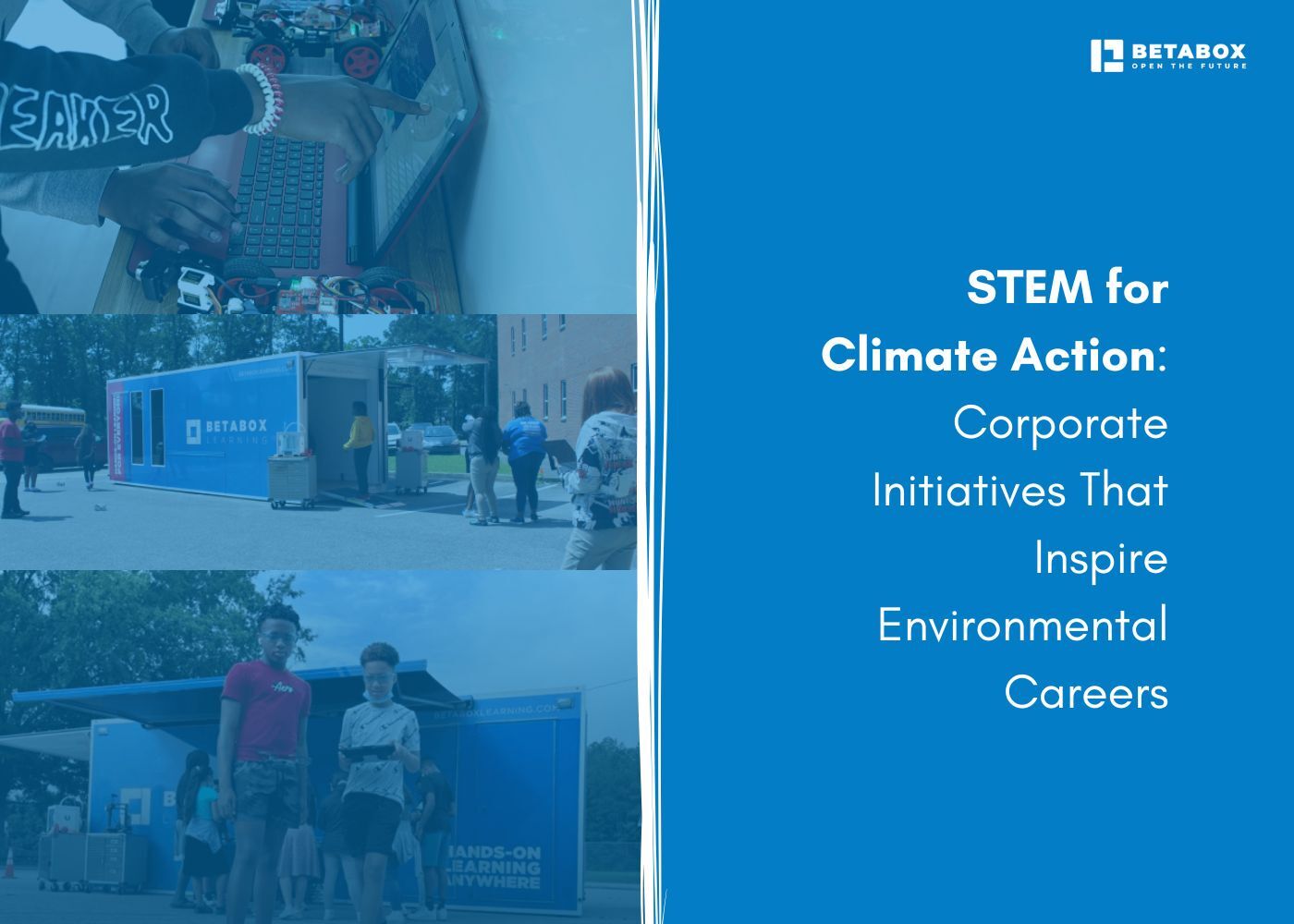



At Betabox Learning, we are passionate about making hands-on STEM curricula accessible to all students.

Join our newsletter to stay in the loop on all things Betabox and the future of STEM education.
By submitting your email address, you agree to our Privacy policy and Terms of Service. You can unsubscribe any time via the link in your email.
© 2025 Betabox. All Rights Reserved
